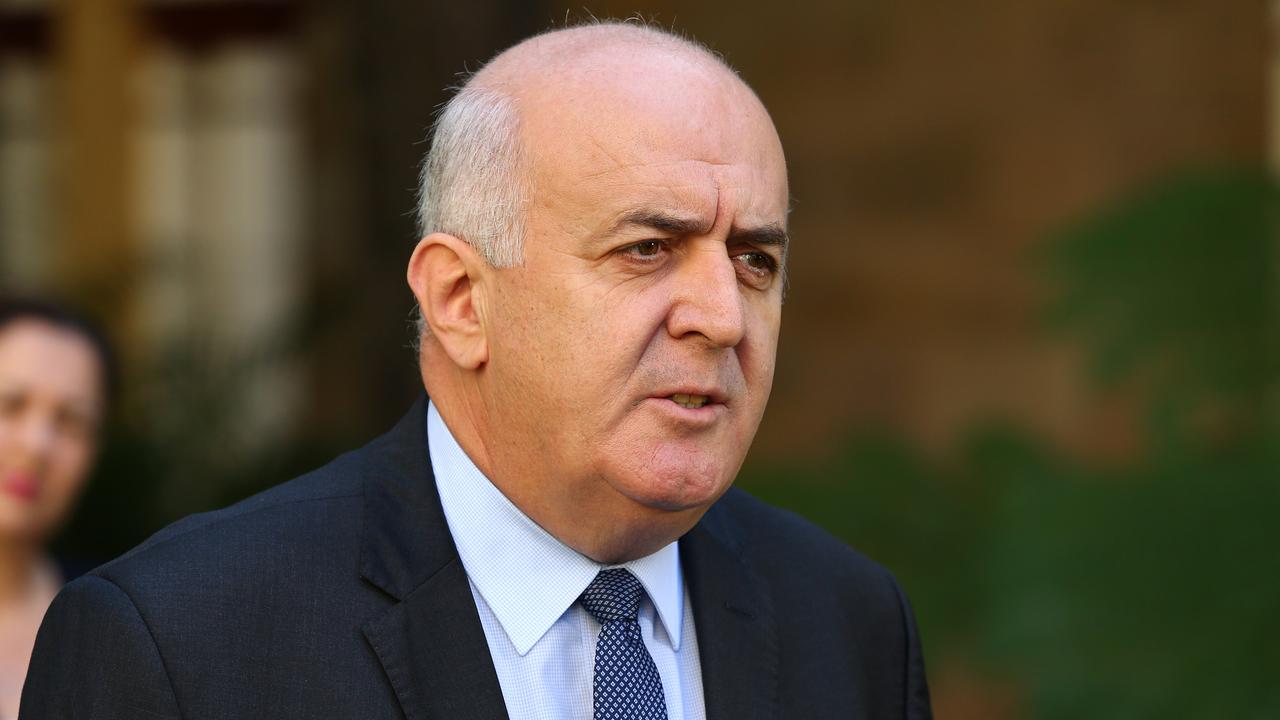Queensland suicide data during COVID-19 crisis shows no major spike due to the pandemic
Queensland suicide data for 2020 shows the anticipated spike in suicide rates due to the coronavirus pandemic has so far failed to materialise.
QLD News
Don't miss out on the headlines from QLD News. Followed categories will be added to My News.
MORE than 500 Queenslanders are suspected to have taken their own lives during the coronavirus crisis but new data shows an anticipated pandemic suicide spike has so far failed to materialise.
Interim Queensland Suicide Register figures, compiled from police reports, show 508 suspected suicides in the first eight months of the year – five more than for the same period last year but 18 fewer than 2017.
TEENAGER’S MUM TALKS ABOUT THE SUICIDE SIGNS SHE MISSED
QLD RESEARCHERS IDENTIFY GENES LINKED TO SELF HARM

Police officers attending the scenes of suspected suicides across Queensland this year mentioned COVID-19 in 41 reports, suggesting the pandemic may be implicated in 37 of the deaths – about seven per cent of cases.
Their reports mentioned a range of issues they believed were COVID-19 related, including employment, finances, social isolation, changes in access to healthcare support, relationship breakdown and affects on mood, coping, stress and anxiety.
Queensland Mental Health Commissioner Ivan Frkovic stressed the new figures, contained in the Queensland Suicide Register annual report, released today, would have to be verified through the coronial investigation process.
But in terms of raw numbers, Mr Frkovic said modelling by the University of Sydney warning of an increase of up to 50 per cent in suicides during the pandemic, had not happened in Queensland to date.
“We haven’t had a spike, a massive increase,” he said. “We’re roughly in a holding pattern.
“But … we’re talking about people’s lives. One suicide is too many.”
Mr Frkovic said suicide risk factors were multifactorial with male gender, marginalisation, relationship breakdown, unemployment and certain occupations, such as construction workers, all implicated.
“It’s never one thing,” he said. “When I talk about employment or when I talk about different work groups or I talk about gender, or I about relationship breakdown. They’re risk factors, whether they’re before COVID or during COVID or amplified by COVID.”

The Queensland Suicide Register annual report, released to coincide with world suicide prevention day, recorded 757 suspected suicides in 2019 – 570 males and 187 females.
Register project manager Stuart Leske said that with males accounting for more than 75 per cent of suspected suicides, interventions that reduced men and boys taking their own lives were crucial.
“There is a lack of knowledge about effective suicide prevention interventions for males, young and old,’’ Dr Leske said.
“Adolescent females … appear more likely than males to benefit from existing suicide prevention initiatives. Future research focusing on male suicide risk should consider men’s lived experiences of suicidal behaviour and how male gender moderates the effectiveness of specific suicide interventions.”
In 2019, Aboriginal and Torres Strait Islander females living in Queensland accounted for 11.9 per cent of all female suicides with Aboriginal Torres Strait Islander males accounting for 8.3 per cent of all male suicides.
Between 2017 and 2019, people who identified as lesbian, gay, bisexual, transsexual, intersex or queer accounted for 36 suspected suicides – 1.5 per cent of cases.
But researchers speculate these figures under represent the actual numbers, given some people may not have disclosed their sexuality to family or friends.
Mr Frkovic said suicide prevention was everybody’s responsibility.
“Sometimes we fear to talk to people who may be in a lot of pain and distress because we think we might say the wrong thing, we think that we need to be a physician or a psychiatrist, that’s not the case,” he said.
“Every touchpoint, every contact is an opportunity. Whether you are a lay person or whether you are a doctor or a psychiatrist, everybody has an opportunity to intervene.”
If this story causes distress:
Lifeline: 13 11 14
Suicide Call Back Service: 1300 659 467
Kids Helpline: 1800 55 1800 or kidshelpline.com.au
Beyond Blue: 1300 224 636 or beyondblue.org.au
MensLine Australia: 1300 78 99 78 or mensline.org.au
Originally published as Queensland suicide data during COVID-19 crisis shows no major spike due to the pandemic



